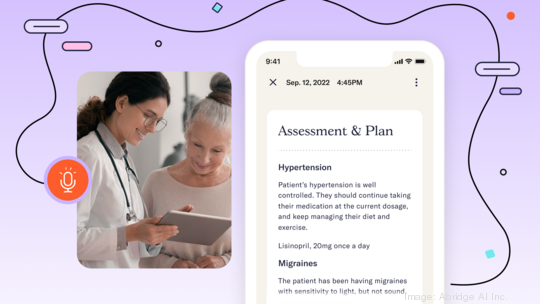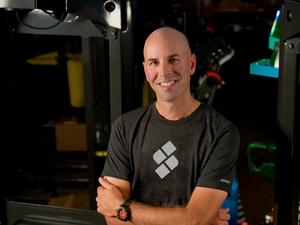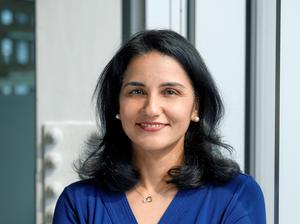
The multi-hour-long process medical professionals partake in daily when it comes to writing summaries of their conversations with patients could become a lot less burdensome in the future by using the technology developed by a Pittsburgh-based startup company.
That company — Abridge AI Inc. — announced the raise of a $12.5 million Series A funding round that will help propel the startup's growth of its artificial intelligence-powered medical transcription platform for doctors and patients. It brings the startup's total funding to more than $27 million since its launch in 2018.
Toronto, Canada-based venture capital firm Wittington Ventures led the oversubscribed round. All prior investors in Abridge also participated in its Series A, which included New York-based VC firms Union Square Ventures and Bessemer Venture Partners; Boston-based VC firm Pillar Venture Capital; and UPMC Enterprises, the investment arm of Pittsburgh-based health care conglomerate UPMC. Abridge also picked up new investors including Yoshua Bengio, a recipient of the prestigious Turing Award, and Whistler Capital, a Nashville, Tennessee-based private equity firm.
Dr. Shivdev Rao, CEO and co-founder of Abridge, said the funding will be used to further expand on the company's research and development efforts, which includes the onboarding of more employees to its current 25-person payroll. The company is looking to hire people who can help expand Abridge's footprint into other health care systems. So far, Abridge's tech has already been used by 2,000 clinicians for 200,000 patients.
Rao, a practicing cardiologist, launched the company to help resolve the burnout many medical professionals face in the health care industry. Instead of his preference of spending more time with patients, Rao said he found himself allocating a large portion of his day to writing medical summary notes following a patient consultation, a factor that he said contributed to his own occupational exhaustion.
"When you ask doctors what is the source of their burnout, one of the top three things that they always cite is having to write notes. What they love doing is seeing their patients and delivering care; there's so much fulfillment," Rao said. "But the act of going and having to document those conversations in the medical record — too often what people are doing is that they're doing it at night when it's called 'pajama time' and so they spend hours and hours at night and it can be soul-crushing to have to go through all that extra work. What our technology is now positioned to do is create that value proposition for professionals, for doctors, for nurses. Our technology can be a part of conversations."
With Abridge's AI transcription and sorting capabilities, Rao and other medical professionals can reduce the amount of time spent on writing these notes and instead spend more of that time being with and speaking to their patients; fielding their questions and ensuring they're ready for the next part of their medical journey. By recording these conversations in the background, Abridge's tech is able to discern between miscellaneous chit-chat a doctor might have with their patient and more pertinent medical information like known allergens or current medication use. Abridge then organizes this information into categories like medical diagnosis, recommended medication dosage, next steps and other details found in a typical summary used by doctors for their records and that of their patients.
"The real first signal in health care delivery is a conversation, and so we set out to build technology that can be a part of all of those conversations, and then that can use machine learning to create summaries that can help everyone involved," Rao said. "Health care is driven by conversations; there are more than two billion conversations that happen every year in health care, so the amount of opportunity there is to get this technology out there is expansive. I think one of the bigger challenges is just finding the people who can help us put together those plans and lay the groundwork to execute them."
In a prepared statement, UPMC Chief Medical Information Officer Dr. Robert Bart praised the accomplishments Abridge has made thus far.
"We had strict requirements in looking for new ways to improve healthcare outcomes — we wanted an ambient documentation solution that could ease documentation pressure for our clinicians, while also improving the quality of patient care," Bart said. "Abridge is the only omnichannel service that scales to all specialties and modalities of care. It’s also the only solution that provides real-time structured data and patient care plans integrated into the electronic health record."
Megh Gupta, a partner at Wittington Ventures, offered praise for Abridge's innovative approach to tackling physician burnout. Wittington's portfolio companies, of which Abridge joins as part of this funding round, include those working in sectors like e-commerce, retail, health care and food service.
"While current solutions on the market are anchored on wakewords that force providers to speak unnaturally or services that are difficult to scale, Abridge works with natural conversations and existing health technology infrastructure," Gupta said in a prepared statement. "This allows Abridge to offer a highly accurate, seamless and cost-effective scribing solution to the masses, setting it apart from the competition and allowing the enterprise to get more value from the millions of health care conversations that are happening every day."
Abridge is planning to announce upcoming partnerships with major hospital and pharmacy service providers soon. Its core machine learning technology is also now available via API to allow existing telemedicine and call center platforms to integrate with Abridge's tech. The company offers its tech using the software-as-a-service licensing model for medical enterprises to then deploy for their employees.









